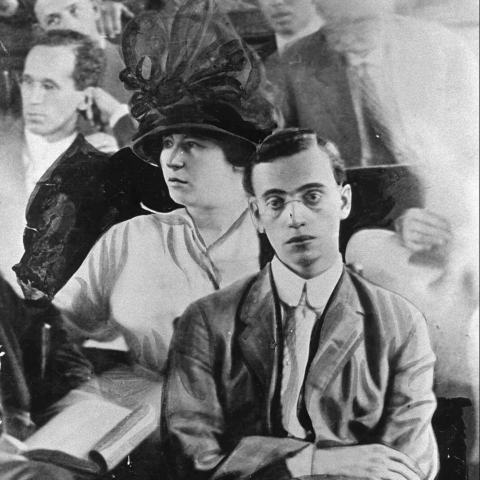By: Alex Edquist
The death penalty has become a burden that the Georgia justice system cannot bear. This is not, however, because of the questionable morality of capital punishment. Instead, it is because it is simply too expensive.
This may come as a surprise, as one of the more common arguments for the death penalty is that it is more cost-efficient than paying for a convict to live out his or her life in prison. However, the nature of death penalty trials and the long legal fight that inevitably ensues before a convict is actually executed has made capital punishment exorbitantly expensive.
The first reason is the trial itself. Judges of death penalty trials must be incredibly
careful not to tread on the defendant’s criminal rights, as the trial will be examined thoroughly at the appeals stage, and any small mistake could be turned into a reason to redo the trial. Because of this, both prosecutors and defenders rack up higher costs in preparing for trial, and the long trials that result cost more in paying for bailiffs, jury members, and other staff. The recent trial of Brian Nichols, who shot and killed a judge in a courthouse, cost $3.2 million. While no comprehensive study has been done on Georgia, a study done on Maryland found that a case seeking the death penalty cost an average of $1.9 million more than a case not seeking the death penalty. In comparison, the Vera Institute calculated that a convict costs Georgia $21,039 per year to house in prison. With those numbers, a convict would have to be expected to live in jail for more than ninety years for the death penalty to be a less expensive option.
But criminals sentenced to the death penalty are rarely executed quickly, mitigating the savings on prison costs. The four convicts executed by the state of Georgia in 2011 had waited an average of 22 years between their date of sentencing and their date of execution, and several inmates currently on death row have been there since the 1970s. Including trial costs, if the average convict were to live for fifty years in prison, he would cost the state $1.3 million less than the convict who spent twenty years on death row before being executed.
Another difficulty with the high costs of death penalty trials is that the trial expenses must be paid immediately, as opposed to the expenses of life in prison, which are spread over the course of decades. Counties share the costs of trials with the state, and for many smaller counties the expenses of a death penalty trial would pose a difficulty for their smaller budgets. In 1991, Dawson County was nearly forced to raise taxes to pay for three death penalty trials, and one district attorney said that his fellows in other counties had been pressured to avoid seeking the death penalty because the county could not afford it. This risks capital punishment being sought on the basis of the county’s ability to pay for it, rather than on the merits of the case.
What complicates matters further are the budget cuts the Georgia justice system has recently faced. Georgia courts faced budget cuts of 10% and 6% in 2010 and 2011, respectively. And those cuts are interfering with the justice system’s ability to do its job effectively. Courts have had to lay off personnel, which has delayed trials. Fortunately for criminal cases, those indicted of a crime have a constitutional right to a speedy trial and are put at the top of the docket. But in some cases, courts have not been able to try suspects of violent crime quickly enough, and thus were forced to throw out the charges. And because Georgia’s superior courts are responsible for both serious criminal and civil matters, civil lawsuits face long delays as criminal cases are prioritized. Georgia Supreme Court Chief Justice Carol Hunstein warned that these long delays jeopardize Georgia’s reputation as a business-friendly state because businesses cannot get their disputes resolved in a timely manner.
Some, however, argue that the death penalty functions as a simple crime deterrence. If the death penalty discourages potential criminals from committing murders and other violent crimes, then not only would it make Georgia a safer place, it would save counties and the state quite a bit of money on police investigations, criminal trials, and prison housing. However, studies have not been able to show that the death penalty indeed has this effect.
Economically, the death penalty makes little sense. Especially with judicial budgets as strained as they are, capital punishment gives no economic justification for its high cost. This article makes no attempt to answer whether or not the act of capital punishment is moral or immoral, but financially it is not rational to pursue the death penalty when life in prison does an equally satisfactory job of preventing a violent criminal from doing any further damage at a much lower cost. If Georgians want their judicial system, like they want their other public systems, to do the best job possible as cheaply as possible, then one way to accomplish that is clear. Abolishing the death penalty will save Georgia money and free up much-needed resources to handle its courts’ full dockets.

